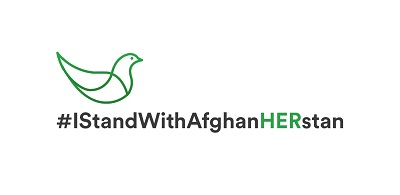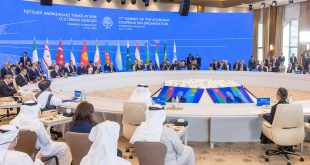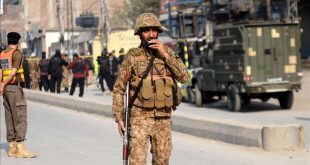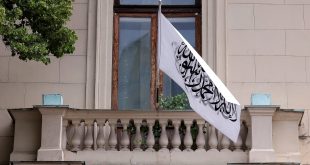By Maria Hayat
Thank you for laying the building blocks for Afghanistan’s development as a democratic nation-state. Whether it’s working in a male dominated industry or going out to vote for the upcoming General Elections or even getting an education, thank you. Thank you for continuing to advocate for your rights despite the cultural norms that the Afghan society sets out, especially after the Taliban occupation where women were expected to be shut behind closed doors, thus many (if not all) of women’s human rights were violated and shattered in the name of ‘moderate Islam’. Unfortunately, this has meant that the Taliban set a precedent for women’s rights and their role in society which has been a long, hard and continuous journey to overcome.
Whilst the eighth round of peace talks are taking place in Qatar between the US and Taliban, waves of fears and concerns about the return of the Taliban has reached the people of Afghanistan. The concept of Taliban’s oppression of freedom of speech, women’s rights and many more returning has daunted all generations including the hopeful diaspora. Prior to the Taliban occupation during the late 1950s , there was an increase in female nurses, doctors and teachers as the government under former President Mohammad Daud encouraged women to be economically active in order to help Afghanistan achieve its targeted development goals. As a result of this, by the 1990s women flourished with a wide range of different careers including journalists, poets and professors. This all came to a halt in 1996 when the Taliban notoriously enforced their ideologies which sacrificed the rights of women. Women were deprived from being able to have the right to have an education, the right to be in a workplace with men or even the right of freedom of movement without being accompanied by a family male member or husband. Public lashing and policing was a common sight on the streets whilst burqas literally and metaphorically became a barrier that concealed Afghan women from society.
Sadly, there is a knowledge gap with how beneficial women can be in society. In fact, female workers are an asset in generating Afghanistan’s future and growth. Women actively taking part of the workforce will increase human capital and boost Afghanistan’s economic growth hugely. By having their own disposable incomes, Afghan women will be able to support themselves financially which would attract more females to get a degree or join the labour market in order to become more independent, giving economic empowerment. According to Microfinance Times, 75% of active borrowers are female as they utilise their loans to start their own businesses. Women have predominantly started to open beauty parlours or tailoring shops. I was a witness to this last summer when I went to NEEL (نيل) Beauty Salon in Shar-e Naw, which was owned and conducted by a female and the employees were all females. Evidently just by having one female running a business, this opens up opportunities for other females to get employed whether it be a Hair Salon, clinic or school. This trickle down effect encourages further investment from abroad into microfinancing and training of the female workers. Similarly, women joining male dominated industries is becoming more common and successful as women are able to bring new skills and ideas to the table.
Fast forward 18 years since the Taliban left Kabul, women have made tremendous steps to return back. This year, Sahraa Karimi became the first ever Female General Director to lead the state-run Afghan Film production based on meritocracy as she is the first and the only woman in Afghanistan who has a PhD in cinema and filmmaking. On the same vein, Justice Anisa Rasooli is the first woman to sit for the Supreme Court and continues to promote females in the justice system with equality and legal advice. Justice Rasooli doesn’t stop there, the Supreme Court Judge also leads the Afghan Women Judges Association which aims for active participation of female judges and lawyers which as of 2017 has had 260 members. Former TOLOnews journalist and News Anchor, Farahnaz Forotan led #MyRedLine, which was a successful campaign that provided a platform for women, and men, to voice what they are not willing to sacrifice for peace with the Taliban. The first Red Line was Forotan’s pen which symbolised that the notable journalist was not willing to sacrifice her freedom of speech and this caused a domino effect of hundreds of Afghans joining the movement and expressing their rights. Even on a local scale in my hometown in Jangalak, Panjshir I met the renowned ‘Raees’ Mariam who started up a homemade jam factory, employing local village girls which I saw being smoothly conducted until they were being sold off whilst paying the female workers with wages and adequate training. Known for her hospitality and loud voice, female villagers feel comfortable turning to Mariam when facing any issues thereby Mariam ensures that even rural AfghanHERstan is able to prosper with equal opportunities. It goes without a shadow of a doubt that there are more Mariams outside of the capital who are unrecognised yet their efforts contribute significantly to the growth of our country. Clearly, women from different fields of the workforce have become visible and are now playing an important role in the emancipation of women’s rights. The rise of prominent women in managerial or high status roles has carved a promising path for the young girls and women in Afghanistan.
The future of AfghanHERstan can only take place effectively with humanity’s greatest gift; education. Shot due to her activism for education equality, Malala Yousafzai has become an inspiration for all, including myself. Malala’s famous quote ‘One book, one pen, one child, and one teacher can change the world’ ought to be embedded and implemented for our girls back home. Education drives success and change in bringing awareness in our society which has been evident through the latter paragraph yet a third of our girls are getting married before the age of 18. According to UNESCO, the gross ratio of enrolment in tertiary education (19-23 years of age) in 2018 was only 5.09% of females whilst 19.8% were male. Even worse, despite universal primary education being one of the UN’s targets under MDGs and SDGs, 84.15% of girls enrolled in primary education according to UNESCO’s gross ratio of primary education enrollment in 2017 whilst 122.75% of boys enrolled. Without a shadow of a doubt, huge amounts of investment in education and training is required in order to continue strengthening women’s rights which the next government should prioritise.
As peace talks are coming to an end, on behalf of the females who have been silenced, who have already progressed their way in their workforce based on merits, who are still sitting in classroom aspiring to become the first Afghan female astronaut to go to the moon, I can only sit and hope for a fruitful and optimistic outcome. The land of Afghan females – AfghanHERstan has already started to thrive and will continue to do so as #IStandWithAfghanHERstan.
 Afghanistan Times
Afghanistan Times




